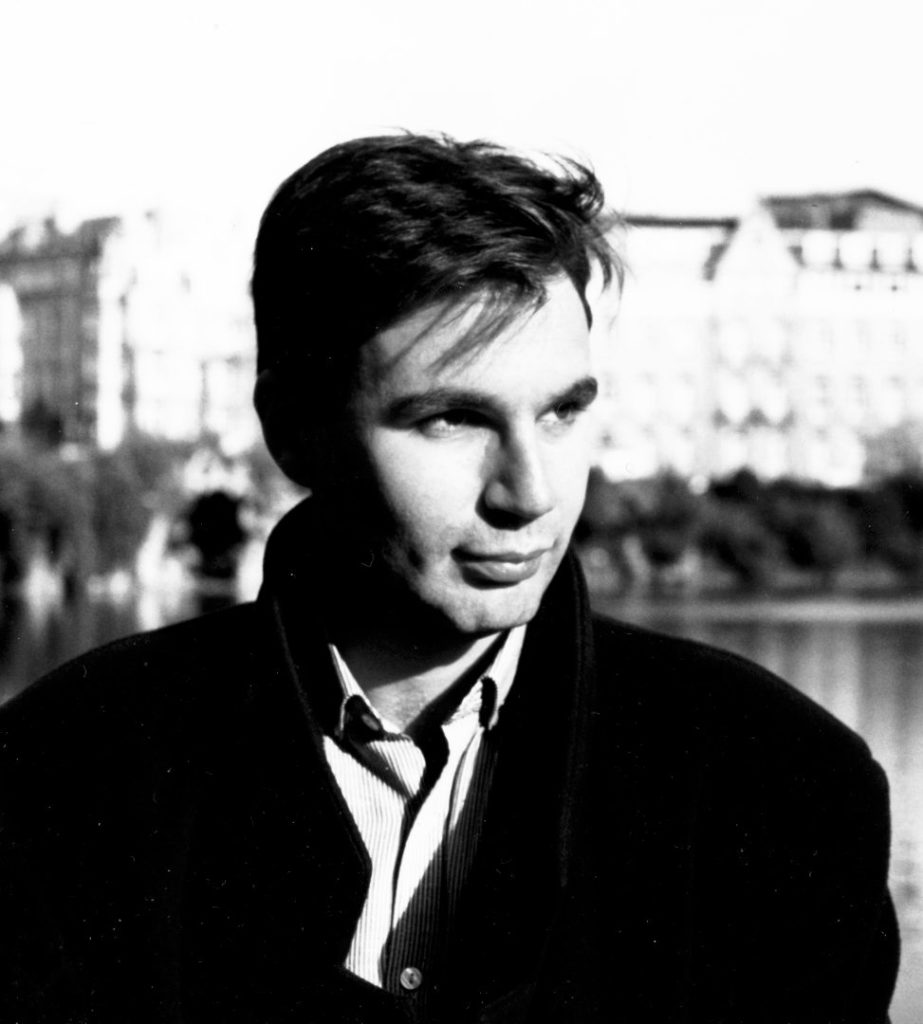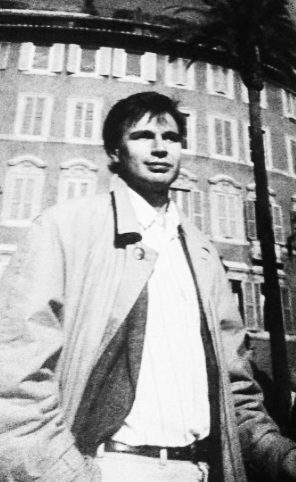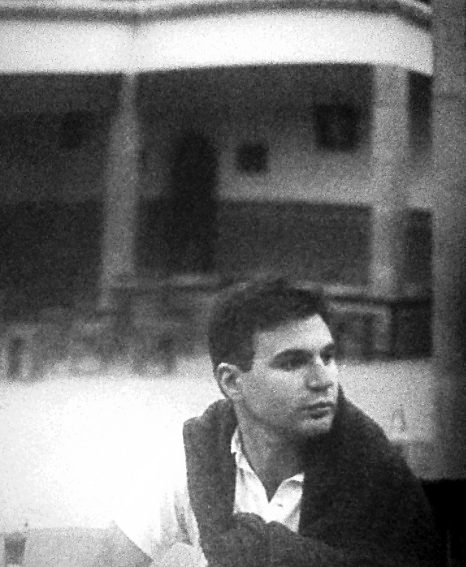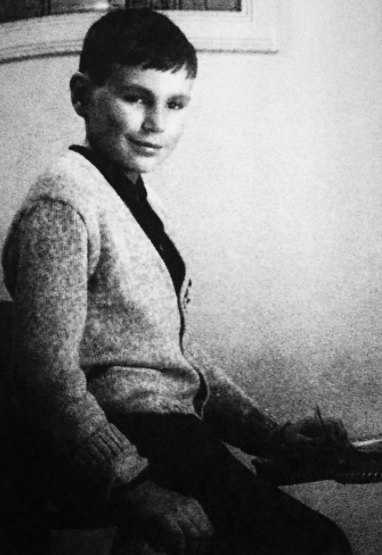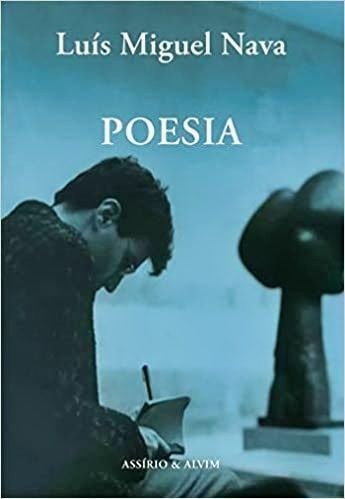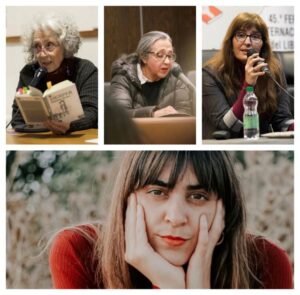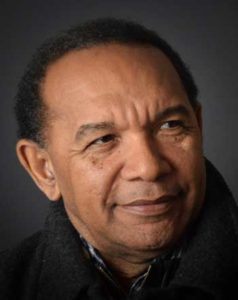Morning seeping into me
Poems by Luís Miguel Nava
(Portugal, 1957–1995)
Translated by Alexis Levitin and Ricardo Vasconcelos
Night Lamp
Now that it’s grown dark, the sap
of memory invades my flesh, memory
that, by its force alone,
stirs it to rise amidst the rubble, casting light on it,
like a night lamp for which
recollections serve as oil.
Lamparina
Agora que escurece, impregnam-me
a carne os sucos da memória, essa memória
que, pela sua força unicamente,
a ergue entre os destroços e a alumia
como uma lamparina
onde as lembranças fossem o azeite.
A Bone
A bone trapped in salt, plunged into salt,
immersed, salting down the body to
its very viscera, a bird singing in my wounds
in the midst of winter, mornings, high
and open, invading the trees,
sinuous mornings, through which
all joy in vain rises
from the floorboards to the cups
on the table where a tortured
bone is turning white, wounded light,
morning seeping into me
till it has turned more infancy than morning
in this bone around which
light vibrates like an aureole,
a morning that not even joy,
magnified by all the lenses,
can manage to penetrate, wounds through which
clouds thicken, barely hiding
now stains around them left by the sea.
Um Osso
Um osso preso ao sal, como que mergulhado
no sal, salgando até às vísceras
o corpo, um pássaro cantando nas feridas
em pleno inverno, as manhãs altas
e abertas invadindo as árvores,
manhãs anfractuosas, através
das quais toda a alegria em vão ascende
das tábuas do soalho aos copos
na mesa onde branquejam
o osso torturado, a luz ferida,
manhã que se me entranha
até ser mais infância que manhã
nesse osso em torno
do qual como uma auréola a luz vibra,
manhã que nem mesmo a alegria
que as lentes uma a uma ampliam
consegue penetrar, feridas através
das quais as nuvens se amontoam mal disfarçam
agora em seu redor manchas de mar.
Three Times Around
In velvet, radar makes its round amidst
a throbbing residue. A magic glow.
The sky now spins them three more times, while just
a single orbit leaves it pulsing hot.
What barren destiny today could still
serve us as motivation? Those landscapes
for which our skin serves as a lens are made
from it and then by it are smashed to bits.
If it must be, let entrails crown themselves
right here upon this sandy stretch of dunes,
and let the viscera of God be crowned.
A tragic circle spinning round is traced
in velvet, where it lends each moment of
the past a violent efficiency.
Três Voltas
O radar gira no veludo, entre resíduos
acesos. São resíduos mágicos.
O céu dá-lhes três voltas, uma
das quais o torna quase incandescente.
Que inóspito destino poderá
servir-nos ainda hoje de intenção? Paisagens
às quais a nossa pele serve de lente
estão feitas com ele, que as desintegra.
Coroem-se as entranhas se preciso
for, neste areal, que as vísceras
de deus se façam coroar.
A trágica circunferência
traçada no veludo empresta a cada
momento do passado uma eficácia atroz.
The Tympanum and the Pupil
On one plate the sea, on the other the river, now
that time is crumbling,
that the stones
I step upon bury themselves in my memory and pathways
grow sharp in my soul like razors, bread
moist in my wounds,
the bread
itself turning to a wound, now
that time, which so often they’ve
compared to a river, is nothing
more than a slight ooze exuding from the walls,
from my hands, now
that the sky is bristling and that pieces
of the world hurled
full force into one’s eyes are spinning
in the dark before turning to ash,
thinner than the snow,
I walk on, my soul open like a wound
the length of memory, where tympanum
and pupil flow together.
O tímpano e a pupila
Num dos pratos o mar, no outro um rio, agora
que o tempo se desossa,
que as pedras
que piso se me enterram na memória e os caminhos
se me aguçam na alma como lâminas, o pão
molhado nas feridas,
o pão
ele próprio já também uma ferida, agora
que o tempo, que já tanto
compararam a um rio, mais
não é do que uma leve exsudação nos muros,
nas mãos, agora
que o céu se encrespa e que pedaços
de mundo arremessados
com toda a força aos olhos revolteiam
na treva antes de se extinguirem,
mais magro do que a neve
caminho, a alma aberta como uma ferida
ao longo da memória, onde se fundem
o tímpano e a pupila.
Hidden Words
They trouble me, the fingerprints
of god close to the roots of flesh, to the uncertain
balance of the soul
in its scales, to the blue
scar of the sky over our destiny.
The pneumatic sea, in whose salty surge
against our senses vivid memories
are formed or melt away,
attacks my senses, murky
craters gouged
into the spirit, through
which, incandescent, images
of the world come spilling forth
like thickened lava, those senses
that, like airy
stigmata, stamp
upon our flesh the scar of sky, the wavering
way those images
of the world are hoisted
higher than the soul or the breath
of the one inside us
kindling its flame. What comes spurting from
the heart comes boiling hot.
Flesh, close to which
the heavens curve, an ancient platform scale
god left standing on the outskirts
of some lost village
filling up with rust, a heavy
scar, combustible, its root
in the deepest dark, the anchored flesh
submerged in destiny, rises up erect
again where memories
take shape then melt away
with all the blue of the sky
there inside seeking to burst forth.
Seated on the deck, as if it were
already night and we tasted in
bread the rancidness of memory, we contemplate
rude sailors.
After searching, in vain, the hillside
for a stairway whose last
step would already be within our memory,
suspended in our memory,
our flesh is stripped from our bones,
with something lyric or festive to it,
down by the docks where the sea
flows from our heart to leap against the jetty,
and now that the years
begin to weigh
more towards the past than towards what lies ahead
hidden words rush to our ears:
“You shut your eyes and I remained outside,”
“In your hands the abyss begins.”
Recônditas Palavras
Inquietam-me as dedadas
de deus rente à raiz da carne, ao indeciso
equilíbrio da alma
na balança, à cicatriz
azul do céu sobre o destino.
O mar pneumático, ao sabor
do qual contra os sentidos se nos fazem
e desfazem as ávidas lembranças,
assalta-me os sentidos, tenebrosas
crateras escavadas
no espírito e através
das quais, incandescentes, as imagens
do mundo sobre ele próprio se derramam
como uma lava espessa, esses sentidos
que, como aéreos
estigmas, nos imprimem
na carne a cicatriz do céu, a indecisa
maneira de as imagens
do mundo se guindarem
mais alto do que a alma ou o alento
de quem dentro de nós
aviva a sua chama. O que nos sai
do coração vem a ferver.
A carne, ao rés
da qual o céu se encurva, báscula
que deus deixou nos arredores
dum qualquer lugarejo
a encher-se de ferrugem, cicatriz
pesada, combustível, com raiz
nas mais profundas trevas, a carne âncora
submersa no destino, ergue-se a pique
de novo onde as lembranças
se fazem e desfazem
com todo o azul do céu
lá dentro a procurar rompê-la.
Sentados no convés, como se fosse
já noite e nos soubesse
o pão ao ranço da memória, contemplamos
os rudes marinheiros.
Depois que pela encosta procurámos
em vão uma escada de que o último
degrau fosse já dentro da memória,
suspenso na memória,
desfaz-se-nos dos ossos
a carne, com o seu quê de lírico e festivo,
em áreas portuárias onde o mar
nos sai do coração para galgar o molhe,
e, agora que começam
os anos a pesar
mais para trás que para a frente, acodem-nos
recônditas palavras aos ouvidos:
«Fecharam-se-te os olhos e eu fiquei de fora»,
«Nas tuas mãos começa o precipício».
Datos Biográficos de: Poetry International
Luís Miguel Nava
(Portugal, 1957–1995)
Luís Miguel Nava, who published the bulk of his work in the 1980s, was perhaps the strongest and most original Portuguese poet to come to light in that decade. Brutally assassinated in Brussels, in May of 1995, when just 37 years old, Nava published his first book – which he soon renounced – when still an adolescent. This was followed, in 1979, by Películas (Films), which won the prize for emerging poets from the Portuguese Writers’ Association.
After earning a degree in Romance Languages and Literatures, he worked as a university professor in Lisbon and at Oxford. From 1986 onwards he lived in Brussels, working as a translator for what was then called the European Community Council.
His last will and testament provided for the creation of a Luís Miguel Nava Foundation, which was to publish a magazine and award a poetry prize, directives that have been faithfully carried out.
The fact he was careful to draft a will at thirty-some years of age and even the way his poetry evolved – his friend the poet Gastão Cruz aptly classified Nava’s last book, Vulcão (Volcano) (1994), as “a veritable Office of Tenebrae” – strongly suggest that the poet had a presentiment that he would not live a long life.
His work, and in particular his last three books, lead us into one of the strangest and most inhospitable worlds ever forged by Portuguese words. In Nava’s universe, which seems to be ruled by a hallucinatory synesthesia, everything interpenetrates and is fused together, or so it feels. And this ‘everything’ includes the body in all its aspects, from the skin (or even the clothing that covers it) to the innermost viscera; everyday objects; landscapes, ocean and sky; past, present and future; and memory, which in Nava’s writing also takes the form of a tangible object, endowed with physical properties. This generalised porosity of things, which allows everything to communicate with everything else, presupposes a universe not governed by the laws of classical physics, but also implies a literal materialisation of sensations.
As his poetry moves inexorably towards chaos and darkness, the properties of the body that sustain this world change accordingly. In Rebentação (Breaking) (1984), everything is still elastic and adhesive, with all the parts of the body in communication with each other and with the world. But in the last two books, as if that elasticity had been taken so far it finally snapped, the body is fragmented and divided, to the point of the poet describing it as a row of bones driven like stakes into the desert.
© Miguel Queirós (Translated by Richard Zenith)
Poetry
-Películas, Moraes, Lisbon, 1979
-A Inércia da Deserção, & etc., Lisbon, 1981.
-Como Alguém Disse, Contexto, Lisbon, 1982
-Rebentação, & etc., Lisbon, 1984
-O Céu sob as Entranhas, Limiar, Oporto, 1989
-Vulcão, Quetzal, Lisbon, 1994
-Poesia completa: 1979–1994, Dom Quixote, Lisbon, 2002
Essays
-O Pão a Culpa a Escrita, Imprensa Nacional-Casa da Moeda, Lisbon, 1982
-Poesia de Rodrigues Lobo, Comunicação, Lisbon, 1985
-O Essencial sobre Eugénio de Andrade, Imprensa Nacional-Casa da Moeda, Lisbon, 1987
-Anthologie de poésie portugaise: 1960-1990, Leuvense Schrijversaktie, Leuven, 1991. Tr. Marie Claire Vromans
-Ensaios reunidos, Assírio e Alvim, Lisbon, 2004
Fotografías cortesía de Fundación Luís Miguel Nava.
